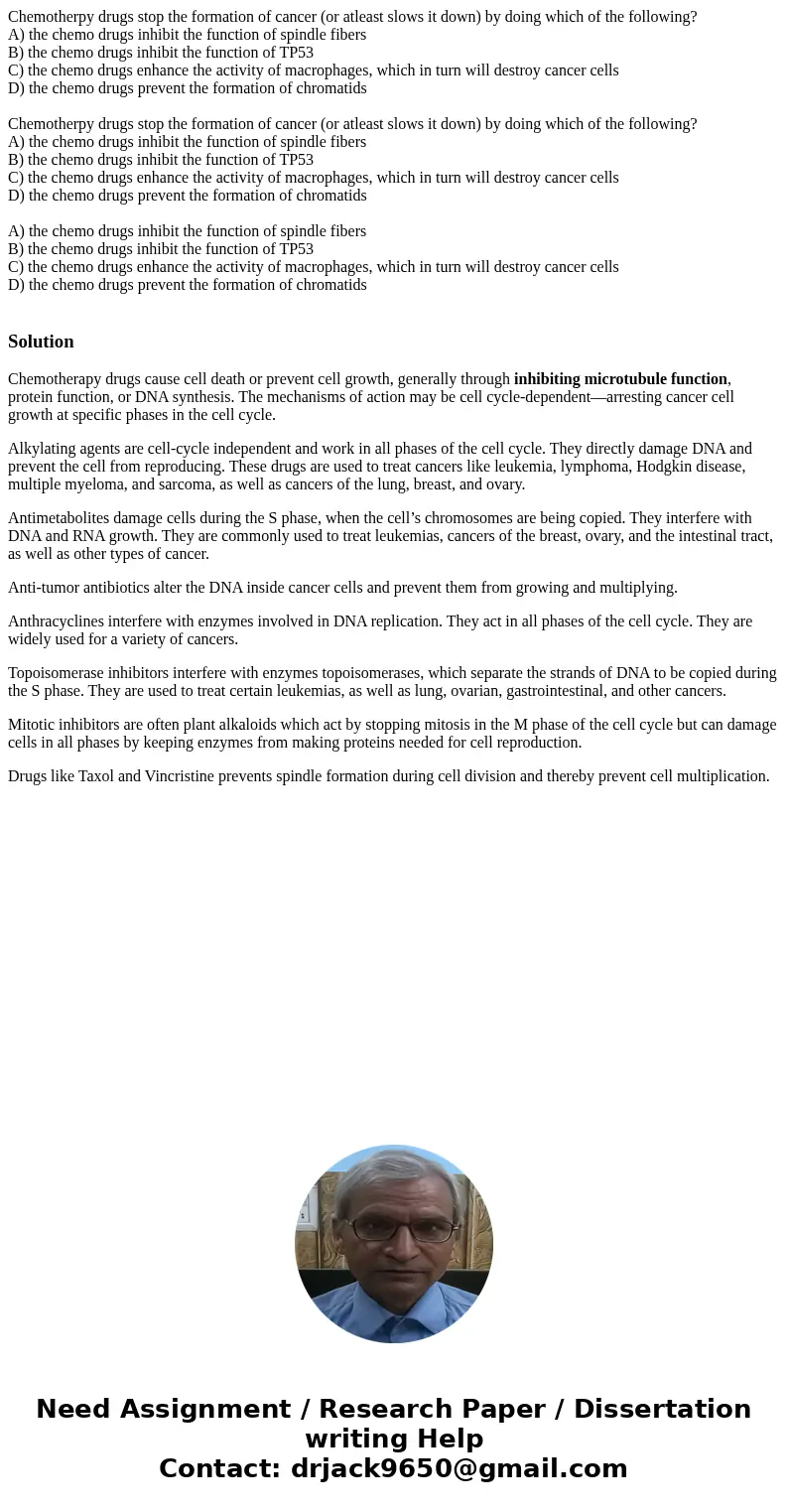Chemotherpy drugs stop the formation of cancer or atleast sl
Solution
Chemotherapy drugs cause cell death or prevent cell growth, generally through inhibiting microtubule function, protein function, or DNA synthesis. The mechanisms of action may be cell cycle-dependent—arresting cancer cell growth at specific phases in the cell cycle.
Alkylating agents are cell-cycle independent and work in all phases of the cell cycle. They directly damage DNA and prevent the cell from reproducing. These drugs are used to treat cancers like leukemia, lymphoma, Hodgkin disease, multiple myeloma, and sarcoma, as well as cancers of the lung, breast, and ovary.
Antimetabolites damage cells during the S phase, when the cell’s chromosomes are being copied. They interfere with DNA and RNA growth. They are commonly used to treat leukemias, cancers of the breast, ovary, and the intestinal tract, as well as other types of cancer.
Anti-tumor antibiotics alter the DNA inside cancer cells and prevent them from growing and multiplying.
Anthracyclines interfere with enzymes involved in DNA replication. They act in all phases of the cell cycle. They are widely used for a variety of cancers.
Topoisomerase inhibitors interfere with enzymes topoisomerases, which separate the strands of DNA to be copied during the S phase. They are used to treat certain leukemias, as well as lung, ovarian, gastrointestinal, and other cancers.
Mitotic inhibitors are often plant alkaloids which act by stopping mitosis in the M phase of the cell cycle but can damage cells in all phases by keeping enzymes from making proteins needed for cell reproduction.
Drugs like Taxol and Vincristine prevents spindle formation during cell division and thereby prevent cell multiplication.

 Homework Sourse
Homework Sourse